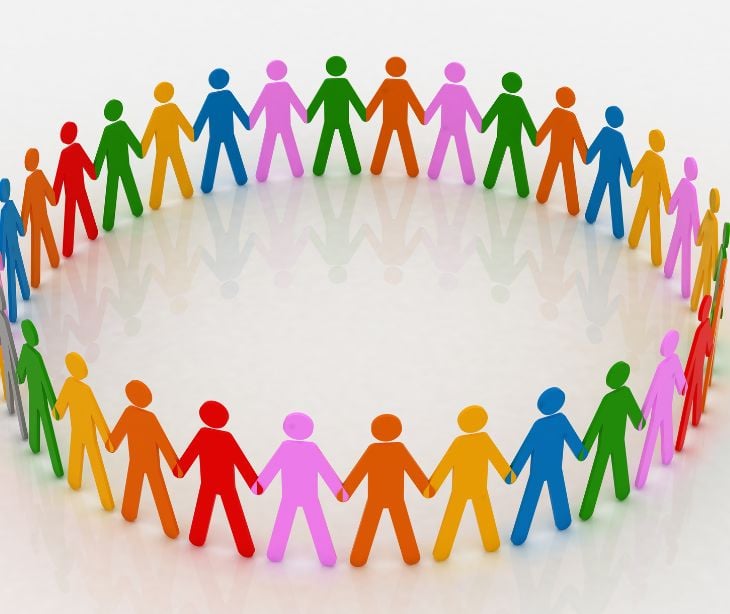2 min read
Should employee assistance programs (EAPs) be HIPAA compliant?
Caitlin Anthoney April 02, 2024

Employee assistance programs (EAPs) should be HIPAA compliant, particularly if they handle protected health information (PHI). HIPAA compliance ensures the confidentiality and security of employees' personal health information, safeguarding sensitive data.
What are employee assistance programs (EAPs)?
Penn Medicine defines EAPs as: "A set of professional services specifically designed to improve and/or maintain the productivity and healthy functioning of the workplace and to address a work organization's particular business needs through the application of specialized knowledge and expertise about human behavior and mental health."
EAPs typically offer confidential counseling services, referrals to community resources, and support for employees dealing with personal or work-related issues. Employers often provide these programs as a benefit to help employees manage stress and improve overall well-being.
Additionally, it can include services such as legal or financial consultations, wellness programs, and workshops on topics like stress management or conflict resolution. Employers aim to create a supportive work environment that promotes employee engagement and retention by offering these resources.
A study on the importance of employee assistance programs during the COVID-19 pandemic revealed that "Over 70.9 million workers in the U.S. have access to an EAP."
Research also shows that EAPs improve employee "anxiety, depression, health status, life satisfaction, and work productivity." Furthermore, "82% considered their experience to be positive and helpful." The study also estimated a "return on investment (ROI) of $4.26:$1 for the EAP from avoided overall health care treatment costs for depression ($611/case) and avoided lost work productivity ($1,433/case)."
Although EAPs serve as valuable resources for employees, organizations must uphold the privacy of the information shared within these programs.
How does HIPAA affect EAPs?
HIPAA is a federal law that protects the privacy of individual's health information and sets standards for the security of electronic health records. While EAPs may not always involve traditional medical treatment, they often handle sensitive information related to mental health, substance abuse, and other personal matters.
An employee assistance program is subject to HIPAA's Privacy and Security Rules if it provides medical services, such as direct counseling, or handles employees' PHI. In cases where the EAP is part of an employer-self-insured plan, the employer is responsible for ensuring HIPAA compliance.
HIPAA requires that any communication containing PHI must be secured to prevent unauthorized access or disclosure. This includes emails sent between employees and EAP providers, as well as any correspondence that may contain sensitive information about an employee's health or personal circumstances.
Tips to ensure HIPAA compliance in email communication regarding EAPs
1. Encryption: Implementing encryption technology can help protect the confidentiality of emails so that they are only readable by authorized recipients.
2. Secure email platforms: Using a secure email platform, like Paubox, that complies with HIPAA regulations can secure sensitive information shared within EAP communications both in transit and at rest.
3. Employee training: Educating employees about the importance of HIPAA compliance and providing guidelines on handling sensitive information in emails can help mitigate the risk of disclosure.
4. Limited access: Restricting access to EAP-related emails to only those employees who need to know can help minimize the risk of unauthorized disclosure.
5. Authorization: Organizations must obtain authorization from employees before sharing any personal or health-related information via email to ensure compliance with HIPAA regulations.
FAQs
Should emails sent within an EAP be HIPAA compliant?
Yes, any email containing protected health information (PHI) within an EAP context must be secured and handled according to HIPAA regulations.
How often should organizations review and update their EAP policies and procedures?
Organizations should regularly review and update their EAP policies and procedures to comply with HIPAA and reflect the latest regulations and best practices. Ideally, this should be done at least annually or whenever there are significant changes in regulatory requirements or the company's operations.
What constitutes PHI in emails?
PHI in emails can include any health-related information that identifies an individual, such as medical history, treatment information, or insurance details.
Subscribe to Paubox Weekly
Every Friday we'll bring you the most important news from Paubox. Our aim is to make you smarter, faster.




